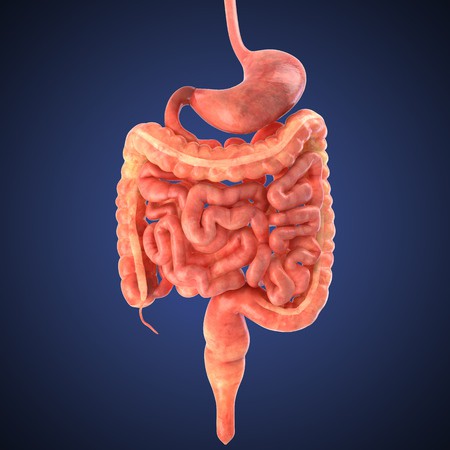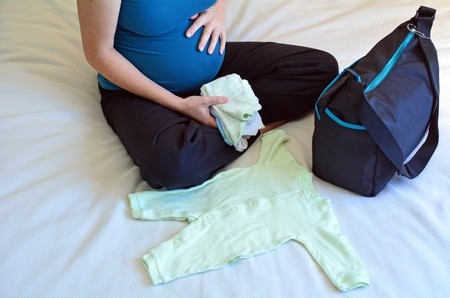The most precious gift and greatest joy a woman can give is giving birth to a beautiful baby. Though a lot of women would say “I want to get pregnant” or “I am ready to be pregnant”, but the reality is, some women would get pregnant with no trouble whereas others would have a hard time and would need an enormous deal of optimism and patience. If a couple is trying to get pregnant for more than a year now and fails to do so, then the diagnosis of infertility is made.
In USA alone, 7.3 million women of reproductive age (15 to 54 years old) experience difficulty in getting pregnant and ten percent of these have unseen causes. Around 7.4% of married women have impaired fecundity. There is about forty percent of the male population who suffer from infertility problems, though both women and men are affected equally by this problem. Approximately 7.3 million women are utilizing the services of infertility clinics and roughly 85% – 90% of these infertility cases are treatable with conventional medical therapy like fertility drugs or surgery. But in a few cases, assisted reproduction methods are used like in vitro fertilization (IVF) and this has cost US health care 0.07 percent of all health care expenses.
There are several factors which can cause this medical problem such as age, prolonged use of alcohol and drugs, smoking, high caffeine intake (although this is still controversial), obesity, poor nutrition or diet, lack of regular exercise, stressful lifestyle, poor timing in intercourse and some physical issues such as irregular menstruation, anovulation, polycystic ovarian syndrome, endometriosis, low sperm count and motility or luteal stage defect.
The fulfillment of bearing a child is a need for most women; this is why they would look for ways to get pregnant.
How To Get Pregnant
Each month a woman has 20 to 25 percent chance of getting pregnant. This is the reason why most fertility experts would say that one of the best ways to get pregnant is for couples to have a “happy sex life”. Studies have found out that a good number of couples with problems on infertility do not have sexual intercourse often enough to get a chance to conceive.
In order to successfully bear a child, the woman’s fertility cycle would greatly help. However, there is no need to schedule your sexual activities around this cycle. It is much better to merely have sex as often as both partners can throughout the whole month. It may seem so easy but with the schedules most couples keep today, it would be very easy to neglect this – simple as it may be.
Remember that each month, hormonal changes would occur inside the woman’s body that would trigger the release of an egg from the ovaries, a process called ovulation that would normally occur fourteen days after a woman’s last period. The egg can survive for 12 to 24 hours after it has been released but a sperm can live for seven days inside the woman’s body, therefore, there is an increase probability of getting pregnant when sexual intercourse is a week before or after an ovulation occurs. Couples do not need to time their sex during ovulation. Striving to do this would only be stressful – which should not happen as stress can lead to less sex.
Women should maintain an eye on the calendar and keep track of the signs of ovulation such as changes in the consistency of the cervical mucus (clear like raw egg white is good) and basal body temperature (slight increase from normal would mean ovulation). There are OTC ovulation kits that would test the urine for increase in hormonal levels that would usually occur before ovulation.
Tips For Getting Pregnant
If couples desperately want to have a baby here are some tips on how to get pregnant. Following these simple do’s and don’ts (aside from having frequent sex) may help the couples get what they want.
Tip#1. If men are frequently in the gym especially in the cycle machine, then now would be a good time to get off the machine. Studies have shown that persistent pressure on the groin can have a unhealthy effect on the nerves and arteries which could affect the sperm count.
Tip#2. Excessive exercising can also affect the chances of conceiving a baby among women for this would result to menstrual cycles with no ovulation or what is known as luteal phase deficiency. So women should watch their exercises too.
Tip#3. Avoid bathroom trips right after sex. Lying down for just about five minutes increases the probability of the sperm to unite with the egg. Standing right up would have gravity working against the process.
Tip#4. Brief periods of abstinence with sex would help increase the volume and potency of the sperm. However, prolonged periods of abstinence (more than six days) can produce mature and less mobile sperms.
Tip#5. Smoking can hold back sperm production and slow down the travel speed of the sperm resulting to a considerably lesser sperm count plus low-grade sperm. These effects may need several months to reverse even if smoking is stopped.
Tip#6. Heat to the testicular area may be unfavorable. The use of boxer shorts will be more beneficial as well as abstaining from saunas or hot baths instead take cool baths.
Tip#7. Keep a balanced vitamins intake. Remember that taking multi-vitamin supplements everyday is helpful. Production of healthy sperms may be promoted with vitamins C, E and B12, Zinc, Argentine, Coenzyme and Selenium.
Tip#8. Relax. A busy and stressful life would cause hormonal changes that would make it more difficult to conceive.
Tip#9. Enjoy sex. Female orgasms can contribute would cause contractions that would help propel the sperms up to the cervix.
Tip#10. Anemia would have a negative effect on the woman’s capability to get pregnant, so it would be advisable to eat foods rich in iron such as green leafy vegetables, prunes, tofu and apricots.
Tip#11. Try elevating the woman’s hips during intercourse by placing a pillow underneath to avoid leakage. This would also expose the cervix, making it easier for fertilization to occur.
Tip#12. Avoid the use of lubricants since this would impair the ability of the sperm to travel through the reproductive tract of the women and for fertilization to occur.
Tip#13. Various medications, counting regular over-the-counter pain relievers, can mess up fertility. Make sure to verify with a healthcare professional before stopping prescription medication.
These are just a few tips on how to get pregnant that have been studied to be effective.
When To Get Pregnant
The most excellent time to become pregnant is the ovulation period in the menstrual cycle, the period subsequent to a rise in the LH levels; where a mature egg is discharged from the follicles and to the uterus. This egg is all ready for fertilization and would stay for roughly twelve hours then after would start to degenerate afterwards. A woman should pay attention to her body and find out ways to determine the signs of ovulation, and in doing so would become pregnant.
A woman’s age would affect her ability to become pregnant. They are normally most fertile during the age of 20 to 24 years. After this period, fertility begins to slowly decrease. By the time the woman reaches forty, the ability to conceive is greatly reduced and complications during pregnancy increases. But what is very important to consider for the best time to get pregnant is the maturity and preparedness of the woman –she should be mentally, psychologically and physically ready to bear a child.
References:
http://www.nhs.uk/Livewell/Fertility/Pages/Getpregnant.aspx


